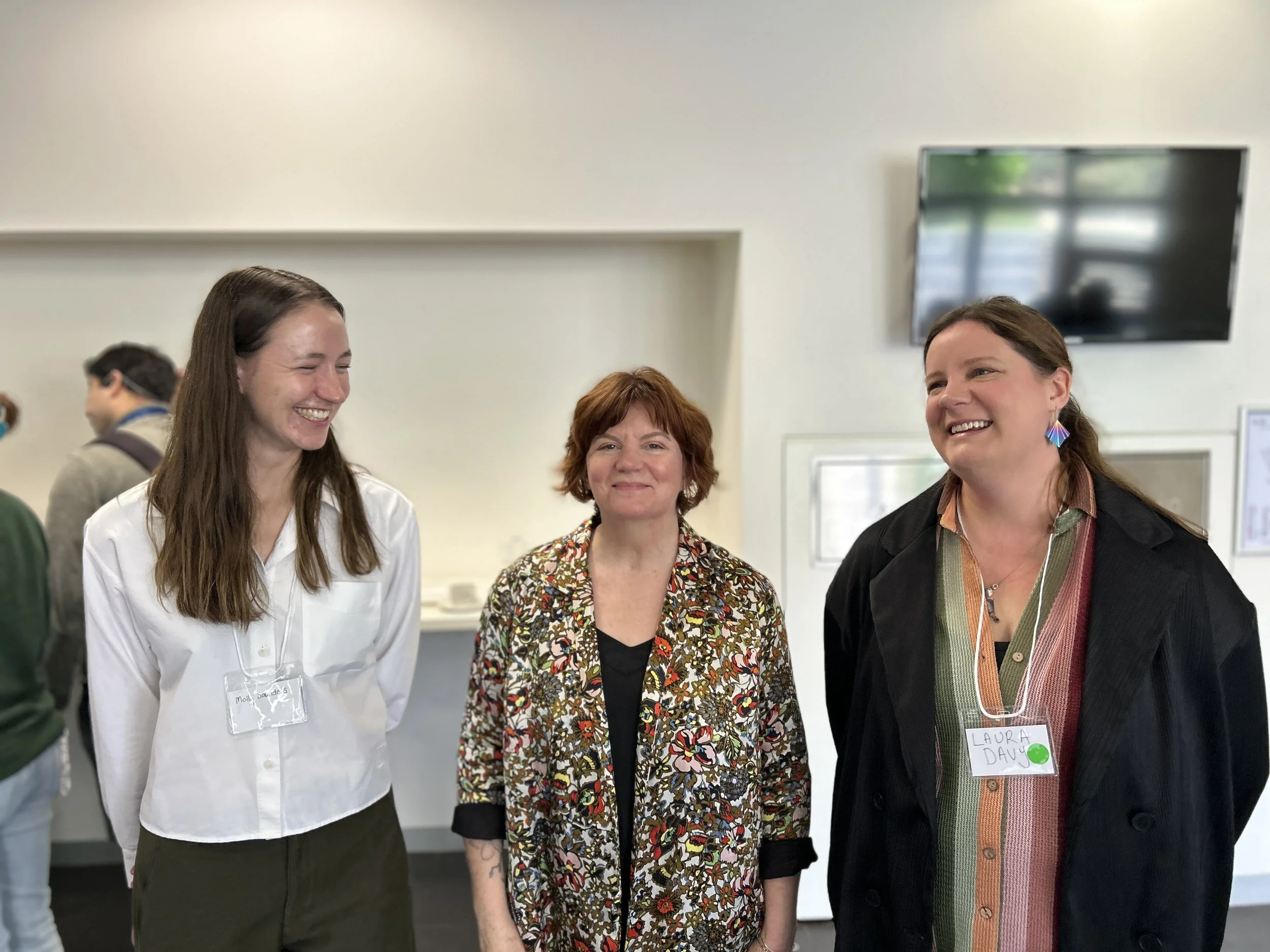Reflections from the Annual ANU Disability Research Network Showcase
The Annual Disability Research Network is organised by Dr. Laura Davy and Ms. Molly Saunders. It aims to celebrate creativity, community and impact in disability research.
This week ANU PhD candidate, and member of the Disability Research Network, Griffin Wright, shares their reflections from the ANU Disability Research Network Showcase 2025.
I have been lucky to attend, and present at the annual Disability Research Network (DRN) showcases in 2024 and 2025. I hope to continue to contribute to these conferences going forward. Each time I come away from the conference with a head swimming with ideas for future possibilities in disability research. This year was particularly inspiring.
From left to right: Molly Saunders, Sofya Gollan and Laura Davy.
I appreciated the diversity in both the presenters, and in the topics and disciplines that were spoken on. The day started with a keynote presentation from Sofya Gollan about cinematic conventions in depictions of Deafness , and how these conventions contribute to a hearing-centred understanding of Deaf experience. It was a fascinating exploration of the depth of anti-Deaf sentiment (or audism) and the various forms it can take in cinema, both on the screen and behind it. Over the course of the day, we heard about a broad range of topics, including policy, access, well-being, and methodological approaches to disabled research. I was particularly inspired by the creativity of many of the presenters in their weaving together of methods and theories to suit the needs of disabled research and disabled research subjects.
I was pleasantly surprised by how many of the presenters spoke on issues that could become pertinent to my own work, and I was exposed to concepts and theories that I hadn’t encountered before. Sophie Yates’ work on measuring poverty, and the costs of disability provided me with important real-world context for the theoretical work I’ve been doing in the area of disability injustice. She introduced me to the ‘disability-development gap ’: the phenomenon where inequality between disabled and non-disabled populations increases as a country develops. Molly Saunders’ work on how disabled women conceptualise the good life, and whether this is achieved under the NDIS, showing me the value of being able to relate theoretical work to lived experiences of disabled people. Conferences of this nature highlight the importance of interdisciplinary discussions, particularly when it comes to an under-researched area such as disability. Feeling like the only disability researcher, and the only disabled researcher, in my department can be quite an isolating experience. As well as being a worthwhile experience for my academic and intellectual development, there is also something comforting about getting to interact with other people who have an understanding of disability and disability research. As a presenter, it was a relief to be able to assume a degree of knowledge on disability, instead of having to explain ‘the social model of disability’ for the millionth time.
My presentation was based on the theoretical component of my PhD. I discussed the presences and absences of disability in political theory, particularly in political theory that aims to construct utopian visions of just societies. This can be a rather bleak area of research, as I continue to encounter examples of the ways that disability has historically, and continues to be, written out of our imagined futures. Disability has consistently been ‘disavowed’, or explicitly discounted as a consideration for regular principles of justice, making disabled people into secondary considerations, when we are considered at all. While the area of political theory I work in continues to fail to account for disability, it does bring hope to see others work towards a better world for disabled people, in each of their disparate areas of research.
Moderator: Dr. Cadhla O’Sullivan

